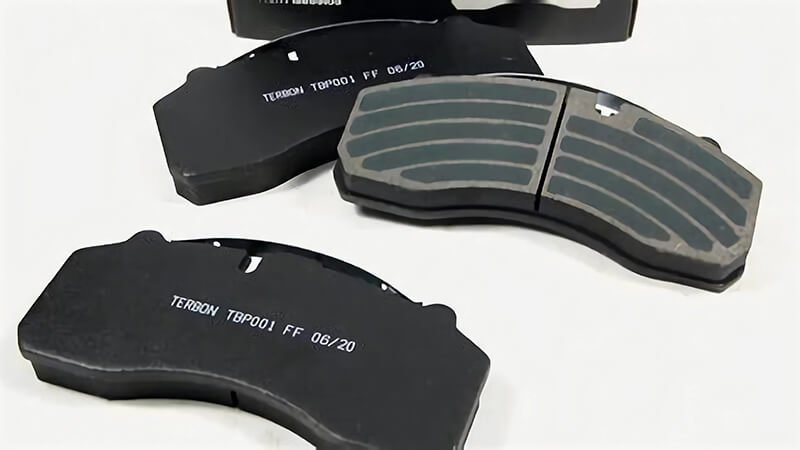I hear this question a lot. It sounds simple. It feels like a quick way to save money. But brakes are a system. One shortcut can set off many costs.
It is not cheaper in the real world to change only one brake pad. I replace pads in pairs on the same axle. This keeps braking force balanced. It prevents uneven wear, rotor damage, noise, and return visits. This saves time and money.
I run Runex Auto. We make and OEM brake pads and filters for global markets. I test our pads for balance, wear, and heat. I will share what I see from the field and from our lab. I will keep it clear and practical.
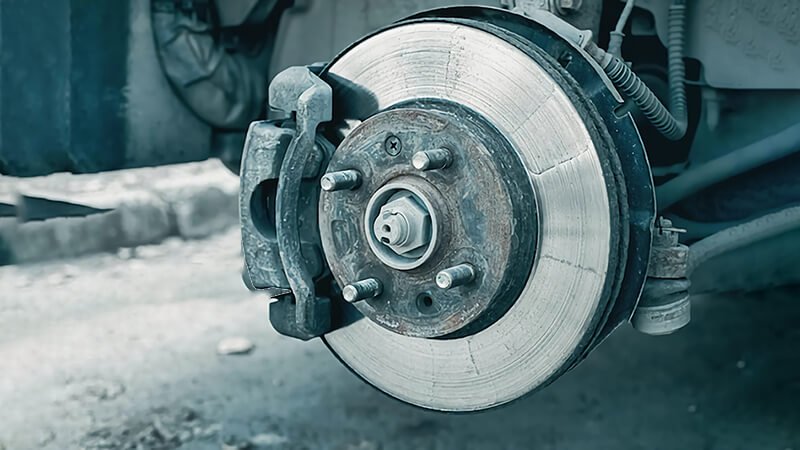
Is it okay to change only one brake pad?
It may look fine to swap one pad. The price is lower today. The car may stop in a short test drive. But the risk starts at the first real stop.
I do not change a single pad on one wheel. I change both pads on the same axle. This keeps the friction level the same left to right. It protects the rotor. It avoids noise and vibration. It also prevents ABS and ESC confusion under hard stops.
Why one pad causes imbalance
A brake system works as a pair on each axle. Each side must create similar friction and heat. If I fit one new pad next to an old pad on the other side, the friction does not match. A new pad has fresh material. It may have a different compound. It can bite harder or softer than the old side. This mismatch pulls the car to one side. It can trigger the ABS sooner on one wheel. It can confuse the driver in an emergency.
How Runex pads reduce risk
Our Runex Auto pads1 hold a steady friction level across heat ranges. We test on a dyno for fade and recovery. We use scorched surfaces for quick bedding. We use shims and chamfers to control noise. When I install them as a pair, both sides behave the same. This gives a clean pedal feel. It keeps stopping distance short. It also spreads heat evenly into the rotors.
Cost math that buyers miss
Short-term savings can hide long-term cost. One pad today can mean a rotor cut next month. It can mean a full axle set later, plus labor again. It can mean a comeback that hurts trust. I saw this many times in fleets and retail.
| Item | One Pad Now | Axle Pair Now |
|---|---|---|
| Parts cost | Low | Medium |
| Labor today | Low | Medium |
| Pedal feel | Inconsistent | Consistent |
| Rotor health | Risk of damage | Protected |
| Noise/Vibration | Higher risk | Low risk |
| Total 6–12 months | Higher | Lower |
A short field story
A client changed one pad to save cost. I warned him. He insisted. Two weeks later, he came back. The car shook under braking. The rotor showed hot spots. We replaced both pads and one rotor. He paid more than a proper axle job. He told me he would never split the axle again.
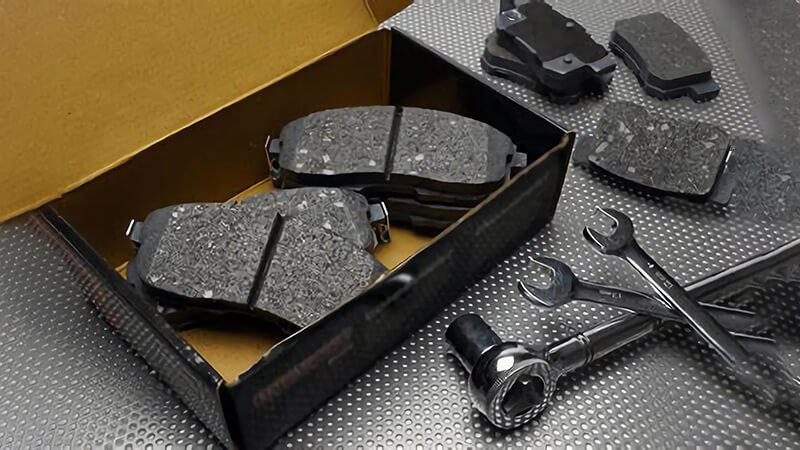
What happens if I only replace one side of the brakes?
If I replace one side only, the system goes out of balance. The new side may grip more or less. Heat builds unevenly. The driver feels a pull, noise, or a pulse. The rotor may suffer.
Replacing one side causes uneven friction and heat. It leads to pull, ABS activation on one wheel, longer stops, and rotor runout or hot spots. I always replace pads in pairs per axle. I also inspect both rotors. I resurface or replace if needed.
Friction mismatch and control systems
Modern cars rely on ABS and ESC to keep stability. These systems compare wheel speeds. If one side grips faster or slower, the system reacts. It may pulse the brakes. It may cut power. This can feel strange to the driver. It can also extend stopping distance on rough or wet roads. A matched set on both sides prevents this confusion.
Heat flow and rotor life
Pads turn kinetic energy into heat. That heat goes into the rotor. When both sides match, the heat spreads evenly. When they do not, the hotter side can glaze. The surface gets hard and slick. The pad then squeals. The rotor may warp or form hot spots. I see this in warranty returns when only one side was changed elsewhere. Our lab shows a sharp rise in disc thickness variation when friction levels2 do not match.
How Runex formulations help
Runex Auto pads3 use consistent compounds. We offer ceramic for low dust and quiet stops. We offer semi-metallic for higher heat loads. We add slots and chamfers to manage gas and reduce noise. We use multilayer shims to block vibration. We match friction codes across left and right pads. We test in-house and with third parties to IATF 16949 and ECE R90 standards. This gives stable friction on both sides, when both sides get replaced as a pair.
| Feature | Runex Ceramic | Runex Semi-Metallic |
|---|---|---|
| Dust | Very low | Medium |
| Noise | Very low with shims | Low with shims |
| Heat range | Daily to spirited | Heavy-duty, towing |
| Rotor wear | Low | Medium |
| Pedal feel | Smooth, linear | Firm, direct |
Practical install steps I follow
I measure rotor thickness and runout. I check hardware, pins, and boots. I clean and lube contact points with high-temp grease. I bed the pads with staged stops. I ask the driver to avoid hard stops for the first 300 km. These simple steps, plus paired replacement, stop most noise and wear issues. They also protect the warranty for both of us.
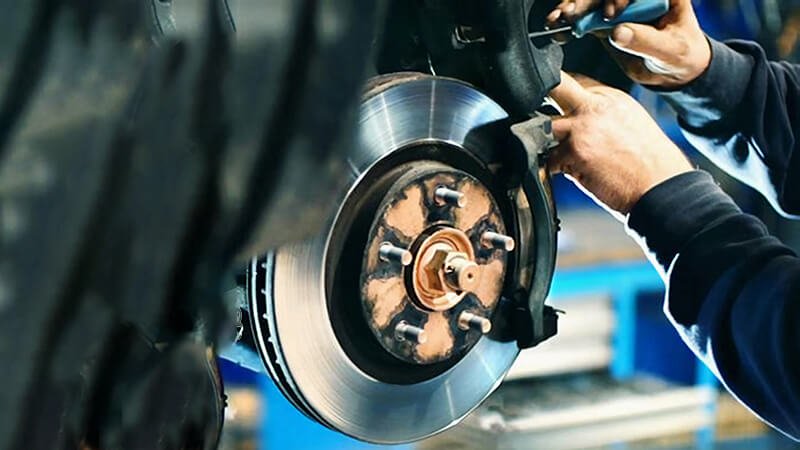
Are ceramic brake pads good?
Ceramic pads get a lot of talk. People like that they are quiet and clean. I use them on many daily drivers. I also choose semi-metallics for heavy loads. It depends on use.
Ceramic pads are good for daily use. They run quiet. They make low dust. They keep rotors clean. Our Runex ceramic pads hold steady friction. They resist fade in normal heat ranges. For towing or track, I pick semi-metallics for higher heat capacity.
What “good” means for me
I define good pads by five things: safe stopping, stable feel, low noise, low dust, and fair rotor wear. Ceramic pads score high in these areas for street use. The friction is smooth. The pedal is easy to modulate. The wheels stay cleaner. The brakes stay quiet in city and highway driving. This gives drivers confidence. It makes fleets easier to maintain.
What Runex ceramic pads offer
Runex Auto ceramic pads4 use fine ceramic and copper-free blends. We design them for a stable friction curve. We add scorched surfaces for fast bedding. We use multi-layer shims to block squeal. We chamfer the edges to reduce edge bite. We add slots to vent gases. We tune the compound to limit rotor abrasion. We test on a dyno across cold and hot cycles. We check noise on NVH rigs. We certify key lines to ECE R90 where needed. This is how I deliver a quiet, clean, and consistent stop.
When I choose ceramic vs semi-metallic
Ceramic makes sense for most commuter cars, small SUVs, and light vans. It shines in stop-and-go traffic. It shines in wet and cold starts. It shines when the owner hates brake dust5. Semi-metallic makes sense for trucks, towing, mountain routes, or high-speed duty. It handles more heat before fade. It gives a firmer bite. It may make more noise and dust. I still use Runex shims and chamfers to control that.
| Use Case | My Pick | Why |
|---|---|---|
| Daily commute | Ceramic | Quiet, low dust, smooth feel |
| Family SUV | Ceramic | Balanced, rotor friendly |
| Fleet delivery | Ceramic or Semi-Metallic | Cost vs heat load |
| Towing/Heavy duty | Semi-Metallic | Heat capacity and bite |
| Spirited driving | Semi-Metallic | Fade resistance |
Real results from the field
I worked with a ride-hail fleet. They wanted low dust and fewer squeal complaints. We switched them to Runex ceramic on front axles. We kept semi-metallic6 on the rear due to heat. Complaints dropped by 70% in three months. Wheel cleaning time went down. Rotor life improved. Fuel and schedule stayed on plan because the cars spent less time in the bay. This is why I call ceramic “good” for daily work. It is not about hype. It is about outcomes that matter to drivers and managers.
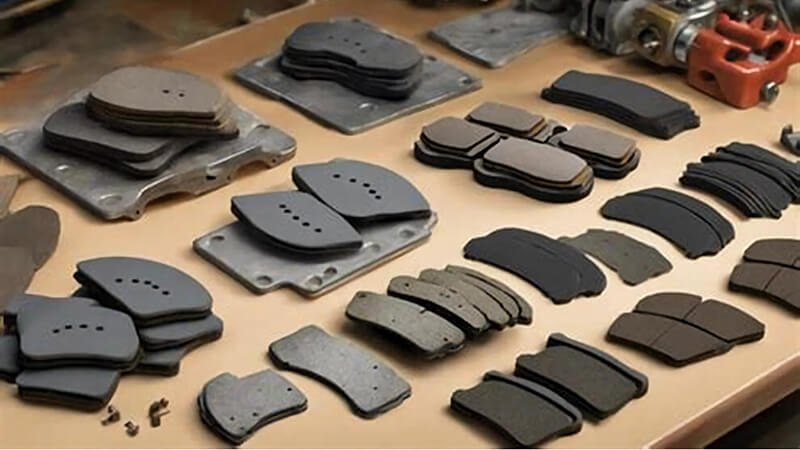
Should I replace front and back brake pads at the same time?
I do not replace front and rear at the same time by default. I replace both sides on the same axle together. I then check the other axle. I replace it when it reaches its service limit.
I replace pads in pairs per axle. I do not force front and rear at the same time unless both axles are worn. I measure thickness, check wear indicators, and test road feel. If both axles are near limits, I do both to save a second visit.
Why axles wear at different rates
Front brakes do more work in most cars. Weight shifts forward when you brake. This adds load to the front pads and rotors. So fronts wear faster. Rears add stability and balance. They wear slower. Some cars with rear brake-based stability7 may wear rears faster than expected. Hybrids and EVs with regen can flip the pattern. I do not guess. I measure and decide.
My service rule and how Runex supports it
My rule is simple. Replace both pads on the same axle. Inspect the other axle. If it is within spec, keep it. If it is near the limit, discuss a full job. This avoids a second labor charge soon after. Runex pads8 help here because the friction curve9 stays stable across the life of the pad. If I keep the rear, and replace the front, the system still feels balanced. We tune compounds so front and rear pairs work well together across common vehicles. We also label compounds with clear FF, GG, or other friction codes so you can match them.
Parts, labor, and downtime math
I care about total cost10. I look at pad price, rotor status, labor hours, and vehicle downtime. A two-axle job costs more today but may save a return visit. A one-axle job costs less today and may be fine if the other axle has life left. I speak with the owner or the fleet lead. I show wear photos and measurements. We decide based on use, season, and schedules. This is honest and keeps trust high.
| Scenario | Action | Why |
|---|---|---|
| Front pads 2 mm, rear pads 6 mm | Replace front pair, inspect rear in 5k km | Rear has life |
| Both axles at 3 mm before peak season | Replace both axles now | Avoid downtime later |
| Rear pads glazing, fronts fine | Replace rear pair, bed-in carefully | Fix noise and balance |
| EV with high regen, fronts fine, rears thin | Replace rear pair | Regen shifts wear rearward |
A client story on timing and savings
A courier company asked me to do both axles every time. I checked the data. Their fronts wore twice as fast as rears. I proposed front-only for one cycle, with a rear check at 10,000 km. We did it. We saved them 18% on parts and 9% on labor across the fleet that quarter. There were no safety issues. We used Runex ceramic fronts and matched rears later. The pedal feel stayed even. The drivers were happy.
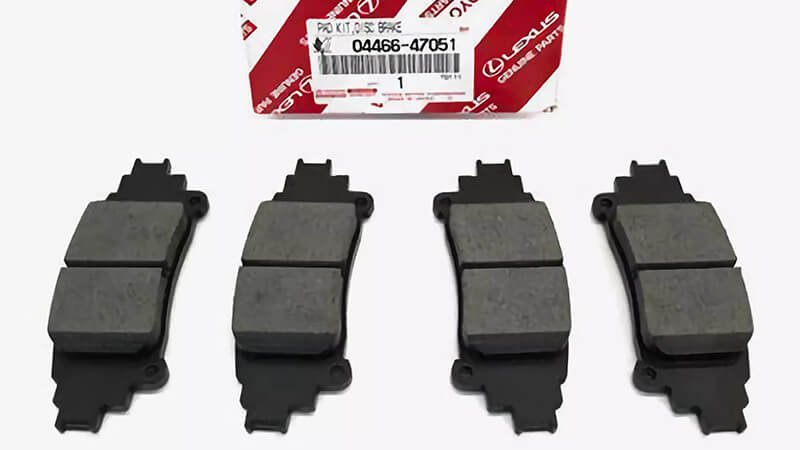
Conclusion
I replace brake pads11 in pairs on the same axle. This keeps balance and protects rotors. I check the other axle and act based on wear and use. Ceramic pads serve most daily needs. Semi-metallic pads handle heat and heavy duty. Runex Auto builds pads that keep friction stable, noise low, and dust down. This saves money over time. It also keeps drivers safe and calm.
-
Explore how Runex Auto pads maintain consistent friction and improve braking performance, ensuring safety and reliability. ↩
-
Understanding friction levels is crucial for maintaining brake performance and safety. Explore this link to learn more. ↩
-
Discover how Runex Auto pads enhance braking efficiency and longevity, ensuring a safer driving experience. ↩
-
Explore the advantages of ceramic pads, including low noise and dust, which enhance driving experience and maintenance. ↩
-
Find effective strategies to minimize brake dust, improving vehicle cleanliness and reducing maintenance efforts. ↩
-
Learn when semi-metallic pads are ideal, especially for heavy-duty applications, ensuring optimal performance and safety. ↩
-
Discover the significance of rear brake-based stability in vehicle handling and safety during braking. ↩
-
Explore how Runex pads enhance braking efficiency and longevity, ensuring a balanced feel across axles. ↩
-
Understanding the friction curve can help you choose the right brake pads for optimal performance and safety. ↩
-
Learn how to effectively manage brake replacement costs to save money and ensure vehicle safety. ↩
-
Find the best auto brake pads from Runex Auto. ↩

